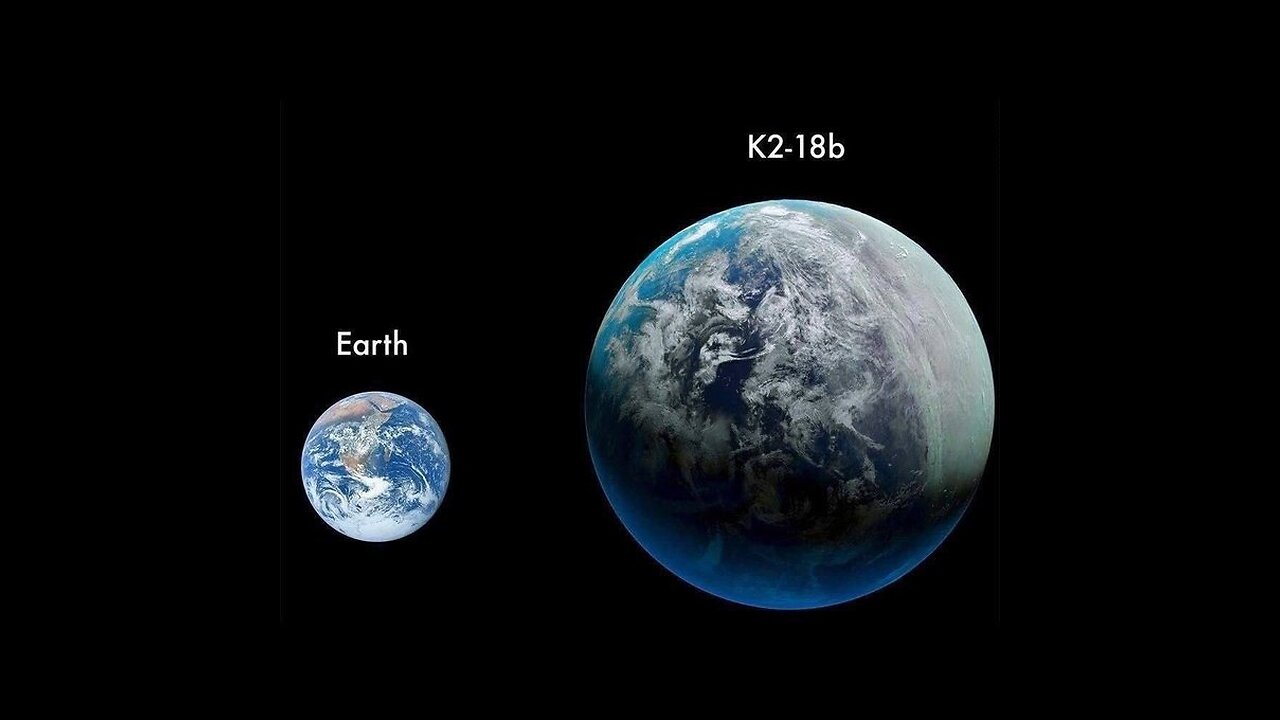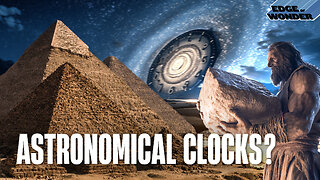Premium Only Content

Possible indicators of life discovered on an alien planet.
The James Webb Space Telescope has made a groundbreaking discovery by identifying the presence of dimethyl sulfide (DMS) in the atmosphere of exoplanet K2-18b. On Earth, this intriguing compound is predominantly produced by marine microorganisms, indicating the potential for similar biological processes elsewhere. K2-18b is classified as a super-Earth, boasting a size approximately 2.6 times larger than our planet. This celestial body is situated about 124 light-years from our Solar System, in the constellation Leo. The finding of DMS adds to the excitement surrounding K2-18b's potential habitability, as researchers continue to explore the composition and conditions of its atmosphere. This discovery highlights the advanced capabilities of the James Webb Space Telescope in contributing to our understanding of distant worlds.
-
 1:15
1:15
Xghzqtk
23 days agoA ground crew member at Dallas Fort Worth Airport lost command of the refueling pipe
19 -
 1:03:37
1:03:37
BonginoReport
3 hours agoElection Night Showdown Spotlight - Nightly Scroll w/ Hayley Caronia (Ep.170)
82.8K18 -
 LIVE
LIVE
Edge of Wonder
2 hours agoSupernatural Forces & Giants Built Great Pyramid of Egypt
196 watching -
 1:24:03
1:24:03
Kim Iversen
4 hours agoAn Islamist Socialist in NYC? The Panic Is Epic | Neocons To Tucker: 'Love Israel OR ELSE'
72.1K93 -
 LIVE
LIVE
Tundra Tactical
3 hours agoProfessional Gun Nerd Plays Battlefield 6
90 watching -
 LIVE
LIVE
Quite Frankly
8 hours ago31/ATLAS to Enoch, Election Night Updates, Open Lines | Timothy Alberino 11/4/25
704 watching -
 1:05:56
1:05:56
vivafrei
3 hours agoComey Doubles Down, Prosecution Doubles Up! Election Day Madness! Boasberg Impeachment & MORE!
32.7K22 -
 LIVE
LIVE
SpartakusLIVE
2 hours agoNEW Meta = EPIC WINS on Battlefield 6 - REDSEC
144 watching -
 4:46:51
4:46:51
StoneMountain64
6 hours agoBattlefield REDSEC leveling guns for attachments
41K2 -
 26:19
26:19
Liberty Hangout
4 days agoAnti-Trumpers Make Up Bizarre Theories
18.2K49